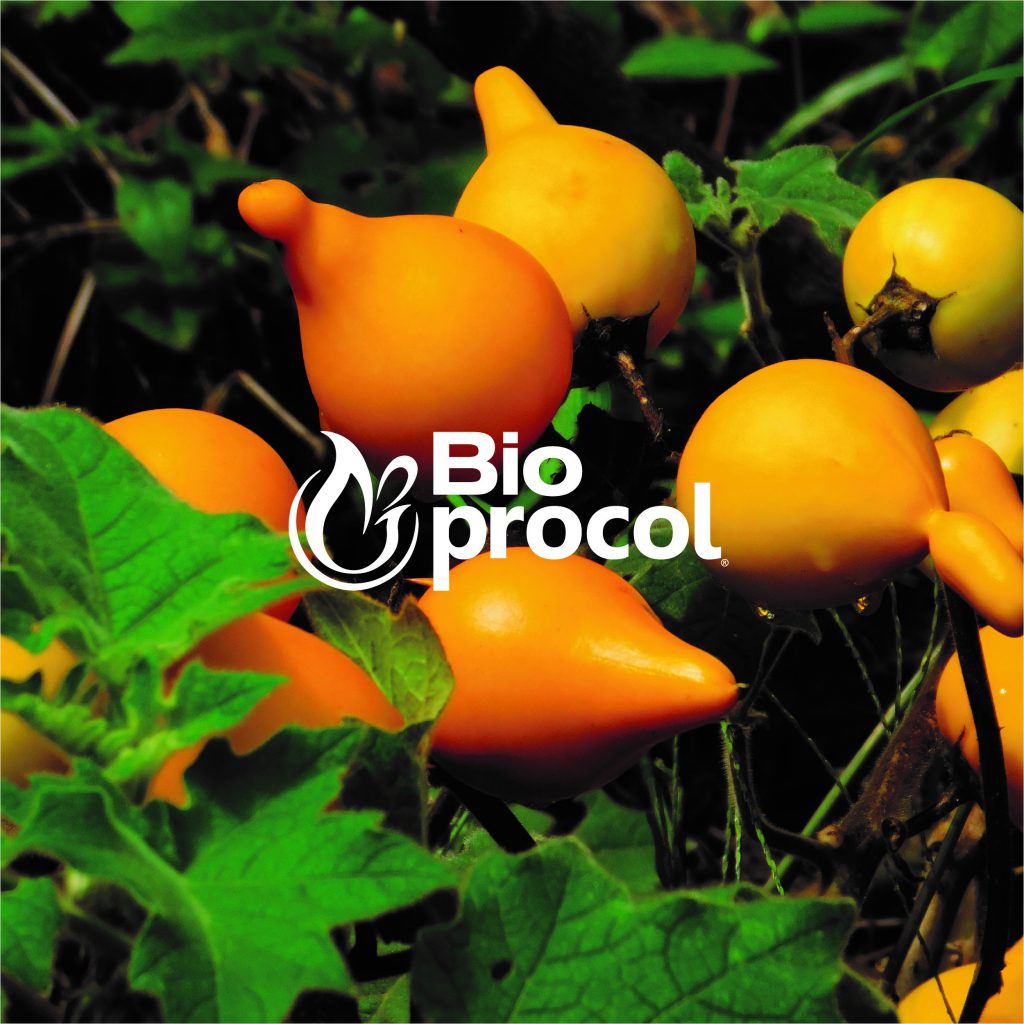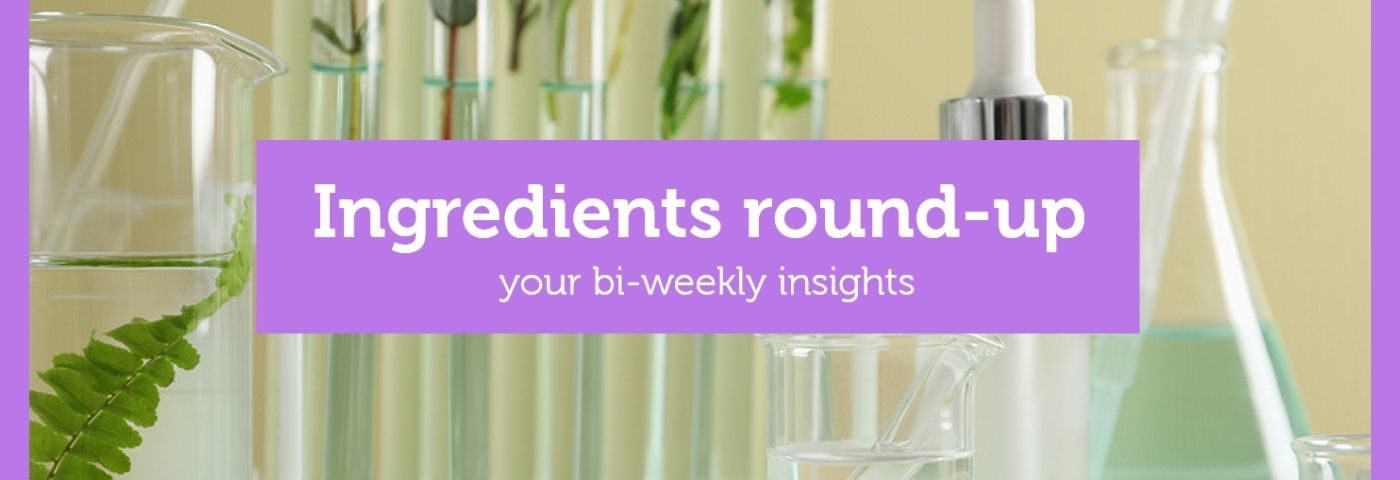Want to stay in the know when it comes to cosmetic ingredients? Delve into our bi-weekly round-up of the latest ingredients news and what that might mean for the industry.
Biprocol platforms sustainable skin care ingredients & anti-ageing cream
Colombia- and UK-based life sciences company Bioprocol is currently platforming several ingredients derived from laboratory processes that deliver natural substances that protect biodiversity and ecosystems.
Its patented technology is supported by the UK government’s Department for International Trade, while the company is also gaining further international leverage from its membership of the prestigious Global Entrepreneur Programme.
Its technology platform is designed to provide state of the art ingredients to replace synthetic and oil-derived materials, providing more sustainable, inspired by nature solutions for the beauty and personal care industry.

In creating this platform, the development team at Bioprocol say that it has created the next generation of extraction technology to obtain pure saponin compounds that can be used in formulation for a broad spectrum of applications.
After years in development, the company has distilled the essence of the Love Apple and Wild Lulo to create two powerful ingredients that are specifically targeted at skin care applications, both of which are registered as INCI by the Personal Care Products Council, in Washington DC, USA.
The first of those ingredients is Solanum Complex, which, according to the team’s clinical trials, can help regenerate skin that has been damaged by UV radiation, pollution, extreme weather and free radicals.
The other ingredient is Sopex, which is also rich in saponins and has multifunctional properties that can trigger anti-ageing and a number of other skin nourishing benefits, including skin conditioning. On the multifunctional side, it also has a preservation effect on the formulation.
As well as the ingredients side, the company has also developed a BioRevitalizing Cream, called Idona, with revitalizing, anti-wrinkle, moisturizing and anti-wrinkle claims.
“Attracted to lipids, our natural ingredients both permeate and stimulate the dermal fibroblasts, working with the molecular origins of beautiful skin. Idona moisturizes the skin while helping to repair damaged cells, facilitating cellular regeneration and rejuvenating ageing tissues,” a company spokesperson stated.
Symrise launches scalp microbiome ingredient
Germany-based cosmetic and personal care provider has launched a microbiome skincare ingredient that is being specifically targeted at the scalp care category, called SymReboot19.
Scalp care is a growing niche trend that has prompted an increasing number of diverse product launches, both on the finished goods side and when it comes to ingredient offerings. Crossing the boundary between skincare and haircare, scientific research is increasingly suggesting that good scalp hair leads can lead to a healthier head of hair.
But the latest launch from Symrise also tackles another growing trend – microbiome skincare. Its research has found that tackling the scalps natural microbiome can also be beneficial for both the scalp and hair. With SymReboot L19, the company has tackled one of the biggest issues with the microbiome trend, which is a lack of data and scientific studies to prove efficacy.
Symrise has met this problem head-on through studies that have produced comprehensive data to demonstrate its probiotic ingredient is effective in enhancing the scalp’s microbiome. The company says that the data demonstrates how the new ingredient can be used to target a host of skin scalp problems, including sensitivity, itchiness, and dandruff, which also enhances the hair’s health.
Study points to endocrine disruption from cosmetic ingredients
Researchers in Spain say that a study they have carried out suggests that a number of cosmetic ingredients could lead to endometriosis caused by paraben and benzophenone derivatives found in beauty and personal care products.
The study, which was carried out by researchers from the University of Granada, found a link with an increase in some derivatives of these substances in urine samples, establishing that the incidence of the ingredients correlated to the amount found in the products. The research used laparoscopy to detect the presence of a variety of chemicals, including a range of benzophenone derivatives (BP-1, BP-3 and benzophone-1) as well as butyl-parabens, while information was concurrently gathered about use of the beauty and personal care products.
Endometriosis is characterized by the formation of tissue outside the uterine cavity that can be affected by hormonal changes during the menstrual cycle. It is a debilitating disease that is said to affect up to one in ten women of child-bearing age and can impact fertility.
The case-controlled study comprised a sample of 124 women, which consisted of 35 actual cases and 89 that were used as controls. The testing was also used to determine whether or not any individual was suffering from endometriosis. The results determined that the frequency of use of these products was directly connected to the levels of benzophenones and parabens found in the urine samples. The researchers also noted that the risk of endometriosis increased in women if exposure to these substances was prolonged.
It was also noted that oxidative stress results did not modify all the noted associations that were observed during the trials between benzophenone/paraben exposure and endometriosis risk. In conclusion, the researchers noted that there is a strong correlation between beauty and personal care usage and exposure to certain benzophenones and parabens, while the presence of these compounds may increase the risk of endometriosis. The researchers also noted that further studies should be carried out to corroborate the findings.
Interested in finding the latest ingredients?
Sign up for free at in-cosmetics Discover, the new ingredient directory


